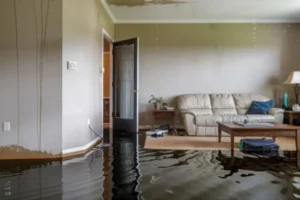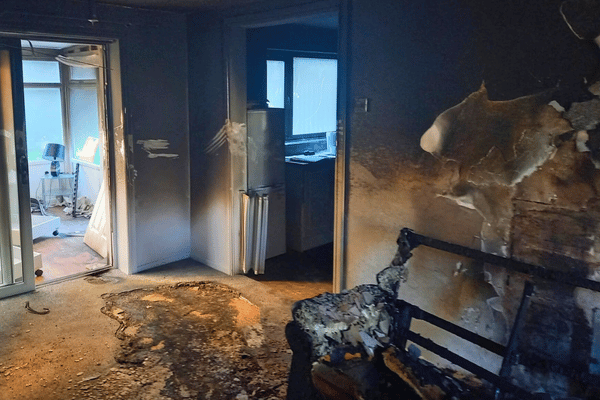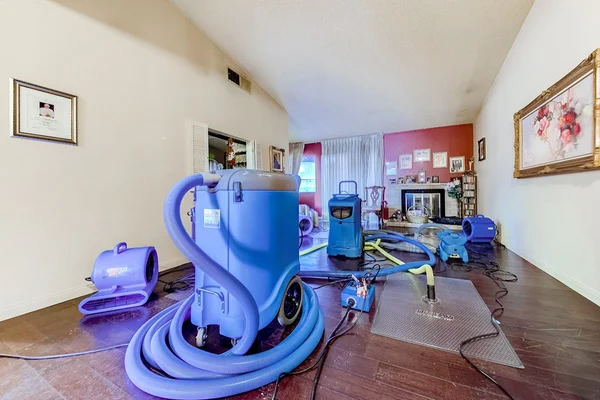Facing water damage is stressful enough, but navigating the water damage insurance claim process adds another layer of challenge. Acting quickly, keeping thorough records, and understanding what can affect your claim are essential steps. Knowing common pitfalls and how to avoid them helps ensure a smoother experience and improve your outcome.
Expert advice can make all the difference when handling these situations effectively. Let’s take a closer look at the homeowner insurance water damage claim process more closely now!
Understanding Your Water Damage Insurance Claim
When it comes to home water damage insurance, knowing what’s covered in your policy is essential. Many homeowners are surprised to discover standard exclusions that can leave them vulnerable to financial loss. Understanding these details can help you navigate your claim more effectively and avoid costly surprises.
What Types of Water Damage Are Covered
Understanding what your home insurance actually covers can save you time, stress, and money when water damage strikes. Most policies include protection for sudden, accidental events—but not all types of water damage are treated equally. Covered water damage often includes:
- Burst pipes due to freezing or pressure
- Roof leaks caused by storms or fallen debris
- Overflowing appliances like washing machines or dishwashers
- Accidental plumbing failures, such as broken water heaters
- Rainwater intrusion if the home was maintained correctly
Common Exclusions in Home Insurance Policies
Even with solid insurance coverage for water damage, many homeowners are surprised by what their insurance doesn’t include. Knowing these exclusions upfront helps you avoid denied claims and plan for supplemental coverage if needed. Common exclusions include:
- Flood damage from rising water or storm surge (requires separate flood insurance)
- Sewer or drain backups, unless you’ve added specific riders
- Gradual leaks or deterioration over time
- Mold growth from unresolved moisture issues
- Neglect or poor maintenance contributed to the damage
Steps to Filing a Water Damage Claim
Taking proactive steps now can help you avoid costly repairs later. Discover how to protect your home against common water damage risks with straightforward, preventive measures.
Assess the Damage Promptly
Quickly assess the situation after water intrusion has occurred. Identify the source, stop further damage, and inspect affected areas, such as walls, floors, and belongings. A prompt evaluation helps you prepare for homeowner insurance water damage request due to water damage and communicate clearly with your insurer from the start.
Document Everything: Photos, Videos, and Receipts
Thorough documentation is key. Take clear photos and videos of all damage, including stains, mold, and soaked materials. Save receipts for emergency repairs or cleanup. These records support your home water damage insurance claim and help your adjuster evaluate the extent of your losses accurately.
Contact Your Insurance Company Quickly
Don’t delay—contact your insurer as soon as possible. Share details about the incident and your documentation. Prompt communication ensures your home insurance claim is processed efficiently, helping you get the support and reimbursement you need to begin repairs and recovery.
Tips to Maximize Your Insurance Payout
To get the most from your insurance claim, it’s crucial to understand your policy’s coverage, limits, and deductibles. Thoughtful preparation and thorough documentation can significantly improve your chances of full reimbursement.
Know Your Policy Limits and Deductibles
Understanding your policy limits and deductibles is essential for maximizing your insurance payout when dealing with water damage. Familiarize yourself with the insurance coverage for water damage amounts and any specific exclusions in your policy.
Knowing your deductible helps you gauge what you’ll need to pay out of pocket before your insurance kicks in. This understanding empowers you to make informed decisions during the claims process.
Hire a Professional Adjuster or Public Insurance Adjuster
Knowing your policy limits and deductibles sets the stage for the next important step: hiring a professional adjuster or public insurance adjuster. These experts understand the claims process and can help maximize your payout.
They’ll assess the damage accurately, negotiate with your insurer, and guarantee you receive fair compensation. Investing in their services often pays off by securing a better settlement for your water damage claim.
Keep Records of All Communications
Keeping thorough records of all communications related to your water damage claim is essential for maximizing your insurance payout. Document every conversation with your insurance company, adjusters, and repair professionals.
Keep emails, notes, and photos organized. This information serves as evidence, ensuring you have a clear timeline and accurate details to support your claim, making it harder for insurers to dispute your case.
Common Mistakes to Avoid When Filing a Claim
When you’re filing a water damage insurance claim, avoiding common mistakes can save you time and money.
Delaying the Report
One critical mistake many homeowners make is delaying reporting water damage to their insurance company. Acting quickly is essential; the longer you wait, the more damage can occur, which may reduce your insurance coverage for water damage.
Insurance policies often require prompt reporting, and failing to do so might jeopardize your claim. Don’t let procrastination impact your ability to receive the compensation you deserve.
Failing to Document Damage Properly
Properly documenting water damage can greatly impact the outcome of your insurance claim. Take clear, high-resolution photos of all affected areas and items. Note the date and time of the damage, and keep records of any conversations with your insurance adjuster.
Detailed documentation helps establish the extent of the damage, ensuring you’re more likely to receive a fair settlement for your claim.
Making Unauthorized Repairs Too Soon
Failing to document water damage thoroughly can lead to complications, especially if you rush into repairs. If you make unauthorized fixes before your insurance adjuster assesses the damage, you risk losing coverage for those repairs.
Take photos and notes before starting any work. Always consult with your insurance provider first to confirm you’re following the proper procedures and protecting your claim.
When to Seek Professional Help
Not all water damage can be handled alone. Discover when it’s time to call in experts for assessment, cleanup, or repairs to protect your home and insurance claim.
Water Damage Restoration Experts
Recognizing the signs of water damage early can save you time, money, and stress. If you notice persistent leaks, mold growth, or water stains, it’s time to call in water damage restoration experts.
They possess the necessary tools and knowledge to accurately assess the situation, remove excess water, and prevent future issues. Don’t wait; addressing problems promptly can minimize damage and costs.
Legal or Insurance Advice for Complex Claims
Water damage can lead to complicated insurance claims, especially when the extent of the damage isn’t clear or when multiple policies are involved. If you find yourself maneuvering through these complexities, it’s wise to seek professional help.
An attorney or insurance expert can clarify your rights, help you gather necessary documentation, and guarantee you receive the compensation you deserve without added stress.
Prevent Future Water Damage to Your Home
Dealing with water damage can be stressful, but filing an insurance claim doesn’t have to be. Use this step-by-step guide to stay organized, document thoroughly, and move your claim forward with confidence.
Maintain Roofs, Pipes, and Appliances
Regularly inspecting and maintaining your roof, pipes, and appliances can help prevent costly water damage in the future. Check for missing shingles, leaks, or rusted pipes. Clean gutters to guarantee proper drainage and test appliances for any signs of wear.
Addressing these issues promptly helps prevent water intrusion, ultimately protecting your home and your wallet from unexpected repair costs.
Invest in Water Detection and Mitigation Systems
Investing in water detection and mitigation systems can significantly enhance your home’s defenses against unexpected leaks and flooding. These systems can alert you to moisture issues before they escalate, saving you time and money.
Consider installing smart sensors and sump pumps to proactively manage water intrusion. By taking these steps, you’ll protect your property and minimize potential damage in the future.
Water Damage Insurance Claims- Final Thoughts
Filing a water damage insurance claim can feel overwhelming, but with the right approach, you can navigate the process smoothly. Remember to document everything, communicate clearly with your insurer, and avoid unauthorized repairs.
By following these tips and seeking professional help when needed, you’ll be better positioned to maximize your payout. Most importantly, take preventive measures to protect your home from future water damage. Stay proactive, and you’ll safeguard your investment for years to come.
Want Peace of Mind After Water Damage? Let Our Specialists Walk You Through the Process!








